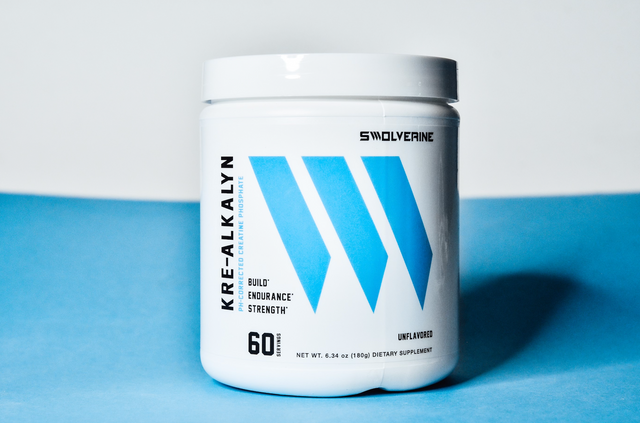Absolutely — here’s your fully structured, SEO-optimized, and research-supported article on the Reverse Crunch, following the same format and tone as the military press, med ball slams, and leg day articles:
Reverse Crunch: The Best Core Exercise You’re Probably Not Doing
Looking for an effective core exercise that targets your lower abs, improves spinal stability, and protects your lower back? Enter the reverse crunch—a highly underrated but powerful movement that deserves a top spot in your ab training routine.
In this article, you'll learn:
-
What the reverse crunch is and how to perform it properly
-
The science-backed benefits of reverse crunches
-
Muscles worked and variations for progression
-
A full core workout featuring the reverse crunch
-
Coaching tips, supplements, and how to program them effectively
What Is the Reverse Crunch?
The reverse crunch is a controlled, bodyweight abdominal exercise that primarily targets the lower portion of the rectus abdominis—the part of your six-pack that’s hardest to hit. Unlike standard crunches, which involve spinal flexion from the top down, reverse crunches initiate movement by curling the hips and pelvis upward toward the ribcage.
This upward motion engages the abs while reducing the compressive stress placed on the spine, making it a safer and more spine-friendly alternative to traditional ab exercises.
“Reverse crunches elicit greater lower abdominal activation and less lumbar strain than traditional abdominal crunches.” — Escamilla et al., Journal of Orthopaedic & Sports Physical Therapy
Benefits of Reverse Crunches
Target Lower Abs More Effectively
Most ab movements overemphasize the upper portion of the rectus abdominis. The reverse crunch directly targets the lower abs, helping improve definition and strength in that hard-to-reach area.
Improves Core Stability
The upward curling motion trains pelvic control and spinal stability, which carry over to safer squats, deadlifts, and athletic movement.
Spine-Safe Movement
Reverse crunches place less compressive force on the lumbar spine than traditional crunches or sit-ups, making them a smart choice for long-term core health.
Can Be Scaled for All Fitness Levels
Reverse crunches are ideal for beginners, but they can also be progressed with tempo work, resistance bands, or decline angles to challenge even advanced athletes.
“Lower abdominal activation is significantly improved in exercises that involve posterior pelvic tilt and leg raise patterns.” — Willardson et al., Strength and Conditioning Journal
Muscles Worked in the Reverse Crunch
| Muscle Group | Role in Movement |
|---|---|
| Rectus Abdominis | Primary mover (especially lower portion) |
| Transverse Abdominis | Core stabilization and bracing |
| Obliques (internal/external) | Assists in trunk control |
| Hip Flexors (minor) | Help initiate the lift, but minimized if done properly |
How to Perform the Reverse Crunch
Step-by-Step Guide
-
Start Position: Lie flat on your back with arms by your sides, palms down. Bend your knees to 90 degrees with feet flat or slightly elevated.
-
Brace the Core: Engage your abs and press your lower back into the floor.
-
Lift & Curl: Without using momentum, lift your hips off the floor by curling your knees toward your chest.
-
Controlled Descent: Slowly lower your hips back down to the floor with control, resisting gravity.
Pro Tips
-
Avoid swinging or using momentum—focus on a slow, controlled contraction.
-
Exhale during the lift to increase abdominal activation.
-
Keep your head and neck relaxed on the floor.
-
Place your hands wider or under your hips if you need additional support.
Sample Core Workout Featuring Reverse Crunches
Here’s a core circuit you can use as a standalone session or add to your lifting day:
| Exercise | Sets | Reps / Time | Notes |
|---|---|---|---|
| Reverse Crunch | 4 | 12–15 reps | Focus on pelvic curl and control |
| Hanging Leg Raise | 3 | 8–12 reps | Advanced progression |
| Plank with Reach | 3 | 30 sec/side | Core and shoulder stability |
| Cable Woodchopper | 3 | 10–12 reps/side | Obliques and rotational control |
| Dead Bug (Bodyweight or Band) | 3 | 8–10/side | Anti-extension core work |
Optional Finisher:
Reverse crunch AMRAP for 60 seconds
Rest 30 seconds
Repeat 2–3 rounds
Programming Tips
-
Frequency: 2–3x/week
-
Reps: 10–20 for hypertrophy and control
-
Tempo: Slow on the way down (eccentric) for more time under tension
-
Progression:
-
Add a decline bench
-
Hold a small dumbbell between knees
-
Perform with straight legs for advanced difficulty
-
Supplement and Coaching Recommendations
Supplements for Core Strength & Recovery
-
Whey Protein Isolate – Supports lean muscle recovery after intense ab training
→ Swolverine Whey Isolate -
ZMT (Sleep Formula) – Enhances overnight recovery and testosterone production
→ Swolverine ZMT -
Collagen Protein – Supports joint, spine, and tendon health during core work
→ Swolverine Collagen Protein
Get Coaching That Builds a Strong Core
Training hard but not seeing results? Our team at The Swole Kitchen will help you build a personalized program with smart nutrition and progressive overload strategies.
→ Apply for Coaching at The Swole Kitchen
Common Mistakes to Avoid
-
Swinging Legs for Momentum: Maintain controlled movements to engage core muscles effectively.
-
Excessive Lower Back Arching: Keep your lower back flat on the floor to avoid unnecessary strain.
-
Lack of Core Engagement: Focus on tightening your core muscles during the entire movement.
Recommended Sets and Reps
-
Beginner: 2-3 sets, 10-12 reps
-
Intermediate: 3-4 sets, 15-20 reps
-
Advanced: 4-5 sets, 20-25 reps
Who Should Avoid Reverse Crunches?
Individuals with severe lower back conditions, recent abdominal surgeries, or significant spinal issues should avoid reverse crunches and consult a medical professional or physical therapist for appropriate exercises.
Complementary Exercises
Enhance your core workout by pairing reverse crunches with these exercises:
-
Planks: Strengthens entire core.
-
Bicycle Crunches: Engages obliques effectively.
-
Russian Twists: Enhances rotational core strength.
-
Leg Raises: Improves lower abdominal strength.
Frequently Asked Questions (FAQ)
Can reverse crunches reduce belly fat?
Reverse crunches help build core strength and muscle definition but should be combined with cardio and a balanced diet to effectively reduce belly fat.
How often should I do reverse crunches?
For optimal results, perform reverse crunches 2-4 times per week, allowing rest days for muscle recovery.
Is it safe to perform reverse crunches daily?
Daily reverse crunches can lead to overtraining or muscle strain. Rest days between core workouts are recommended.
The reverse crunch is an excellent exercise for safely building core strength, improving posture, and enhancing aesthetic appeal without placing unnecessary stress on your spine and neck. Incorporate it regularly into your fitness routine for maximum benefits and a stronger, more defined midsection.
Final Thoughts: Why Reverse Crunches Belong in Every Core Routine
If you're serious about building a strong, functional, and aesthetic core, reverse crunches are essential. They safely target the lower abs, support spinal alignment, and deliver results when performed with proper form and intent.
Whether you’re an athlete, lifter, or beginner, the reverse crunch is a low-risk, high-reward movement to add into your weekly core routine.
Train with control. Brace with intent. Build a bulletproof core.
Need Help With Optimizing Your Diet, Nutrition, And Training Plan To Finally Get The Results You've Been Waiting For?
SWOLVERINE IS AN ENDURANCE ATHLETE AND ACTIVE LIFESTYLE BRAND. MADE FOR THE ELITE ATHLETE, AND THE STRONG-WILLED OUR PRODUCTS WERE DESIGNED TO FUEL YOUR ATHLETIC PERFORMANCE. WE PERFORM WHEN YOU PERFORM.
We believe that everyone can optimize not only their athletic performance but their human potential. The way we believe we can optimize performance is through transparency, clinically effective doses, and clinically proven ingredients with evidence-based outcomes. We provide the nutrients you need to power your active lifestyle.














